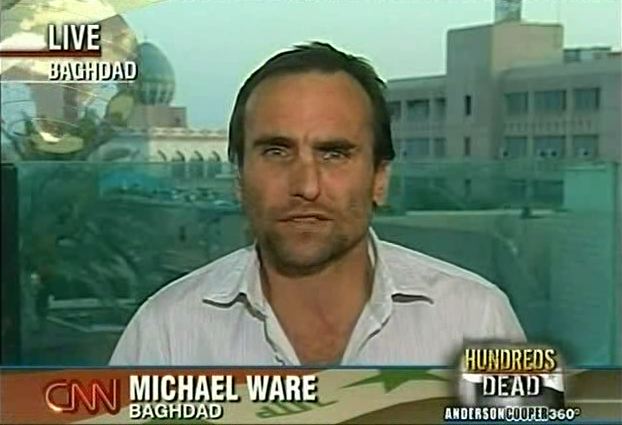AC: "You'll never be able to tame or defeat al Qaeda. They will be a lingering presence."

Length: 3:28
LARGE (40.8 MB) ----- SMALL (4 MB)
ANDERSON COOPER: Now to Iraq and the deadliest single insurgent attack since the war began.
Suicide bombers hitting three villages in the northern part of the country, utterly leveling two of those villages. The pictures speak for themselves. At least 500 people have died. Hundreds more are more hurt.
American commanders suspect al Qaeda but no claim of responsibility yet. It happened in a place where American forces have not so-called surged, and if General Petraeus gets what he said today he wants, there may soon be fewer and fewer Americans in Iraq to surge anywhere.
The latest now on the bombings and the possible troop cuts from CNN's Michael Ware, who joins us now from Baghdad.
Michael, this is the area where the attacks occurred. It's known for having -- I mean, is it known for having a strong terrorist presence?
MICHAEL WARE: Absolutely, Anderson. I mean, this is up along the Syrian border in the northwest part of Iraq.
Now, not so long ago, just 18 months ago, two years ago, al Qaeda essentially owned this area. I mean, it was up here where the famed battle of Tal Afar took place. That's a major city, just on the edge of the border, that al Qaeda literally took complete control over.
The areas that have been attacked in this devastating strike are just south of that major city of Tal Afar. So this was within al Qaeda's broader area of influence.
Now, American forces went in to oust them. They did that successfully at the time. But this just goes to show you: you'll never be able to tame or defeat al Qaeda. They will be a lingering presence.
COOPER: Why did they target this particular group, this particular ethnic population?
WARE: Yeah, this is a number of communities of people of the Yezidi religion or religious sect. Now, it predates Islam. It doesn't hold any of the tenets of Islam. So al Qaeda and indeed many other Muslims in the region certainly frown very much upon this faith. They see them as heathens or heretics.
Now, al Qaeda's long threatened this group, and now we're seeing them really strike a blow against these remote and peripheral communities, Anderson.
COOPER: So there are reports that General Petraeus may call for a partial pullback in areas where violence has been contained and turn over security to Iraqi forces. Does the military need a persistent force, a persistent U.S. force in those areas, or are Iraqi forces ready?
WARE: Look, Anderson, to be honest, America needs a persistent force all over this country. I mean, even with the surge, there's not enough troops to do what has to be done. Just in the fight against al Qaeda, let alone the competition with Iran and its proxy militias, who essentially own half of the country, not U.S. forces.
I mean, we've just returned from an area north of the capital Baghdad in the Diyala River Valley. Now, there's never been enough U.S. troops to go in and take that valley and own it. Well, now we're seeing that happen.
But there's always pockets where al Qaeda can maintain its headquarters and training camps, because there's just not enough boots on the ground, and the Iraqi forces are nowhere near ready.
COOPER: Michael Ware, appreciate the reporting. Michael, thanks very much, joining us from Baghdad tonight.
